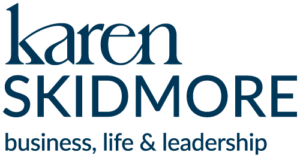Recently a certain politician called a police officer a “pleb”.
I remember using this term when I was a teenager in the 80’s; a harmless jibe when a good friend made a silly mistake. “Oh, you’re such a pleb!” was often sniggered when one of our mates walked in to a lamp post or answered a question wrongly during a lesson.
Yup, kids can be so cruel, can’t they?!
When I first read the headlines about this row over whether this term was actually used, I laughed. How could such a harmless word be causing such uproar?
But when used by a Tory Minster to a public servant, the true meaning of the word gave this outburst an ugly twist … especially with the preceding expletive.
If he called this police officer a mere idiot, would he have been in such hot water?
Now, this is – and will never be! – a political blog. And I certainly don’t intend to get in to a discussion about the rights and wrongs over this incident :O) … but hearing this word again after all these years, got me thinking about the language we use in our businesses.
Does using one word over another really make a difference to how people perceive you?
Does using one word over another really make you stand out and get noticed? (And for all the wrong reasons, as well as the right ones!)
Who remembers the hoo-ha when the word “mumpreneur” was added to the Collins English Dictionary in 2011? Dozens of articles where blogged about whether it was a derogatory term and belittled the business prowess of entrepreneurs, who happened to be mothers.
Some of you love to use the term “mumpreneur” on your About page and Twitter profiles, whilst others shudder at the thought because they feel they won’t be taken seriously by others.
If you are a working mum and corporate trainer who focuses on winning large contracts for you and associates to deliver, would this term “mumpreneur” help you stand out … or get you passed over?
What about the phrase “lifestyle business”? Or “network marketing”?
Phrases such as these can draw up very different images in people’s minds. Would a potential client think you take your work seriously if you advertised yourself as having a “lifestyle” business? If you announce that are a “network marketer” at a local networking event, do you see people automatically take one step away from you, worried that they are going to get a sales pitch thrown at them?
Now both these assumptions may be totally wrong. But there will be some people out there who will make them.
And then there’s the danger of using technical or industry specific terms. You want to show that you know your stuff, but focusing your website copy or client proposal on industry lingo and you may come across as arrogant or, more likely, confusing.
The language you use in your marketing material is critical to your success. Your website copy, the script of your video; the summary of your Linkedin profile – all important to how new and existing clients perceive how well you could serve them.
This is why it’s critical that you spend time to truly understand what phrases and words your target clients use in their everyday world.
Read the emails that your clients send you and take note of the exact phrases and questions that they’ve used in their text.
Look at the testimonials you’ve been given and pick out the phrases your clients have actually used.
Write down phrases that your clients have said to you over the phone.
The more you use your clients’ everyday language, the more likely you are going to get noticed by them.
Of course, I wouldn’t for a moment suggest that you call your clients plebs, even if they do use the term themselves. That may be just taking it a step too far ;o)
What do you think? I’d love to read your thoughts and comments so please add them below.









Hi Karen – plebgate – love it!
You are so right though, understanding and usage of your clients language is so important when it comes to communicating effectively. And so important to help the search engines understand what your website is all about so rank you well!
Thanks for this reminder Karen – you’re right, it’s SO important to get the language right!
Being a bit on the techie side, in the past I’ve had one or two clients “switch off” mid-conversation if they weren’t techie & I’d been explaining something to them in too much detail – the silence at the end of the phone says a lot! My job is to make things simple for them – and at that point I’d forgotten it – lesson well learned; I never assume people understand jargon or techie terms 🙂 I just speak plain old English now 😉
Hi Karen
We can all be soooo guilty of this, innit?…..see what I did there?
Ahem..AND Life Coaches and their “self-limiting” beliefs are a fabulous example. If I mentioned to my clients that I could help them to “overcome their many negative, self-limiting beliefs and start to experience the process of their lives” they would first of all ask me if I was ok and then tell me how busy they were going to be next month whilst running for the door….
Great post. Thank you.
This was a useful article as I was about to send another email newsletter, no doubt using the same familiar adjectives and phrases. So this time I did what you suggested and looked at the feedback I had from clients, and used their words and phrases. Hope it works!